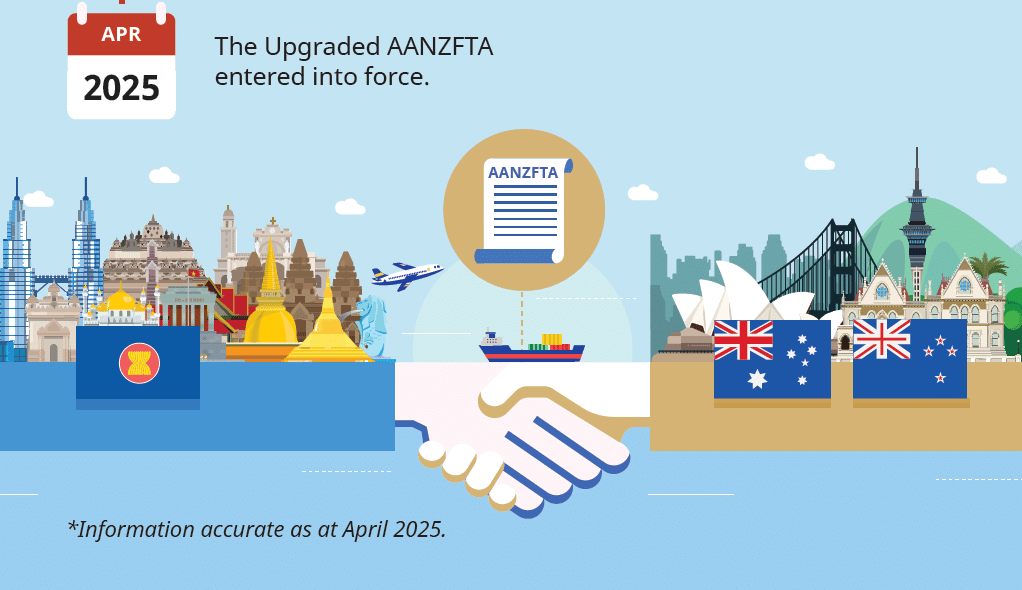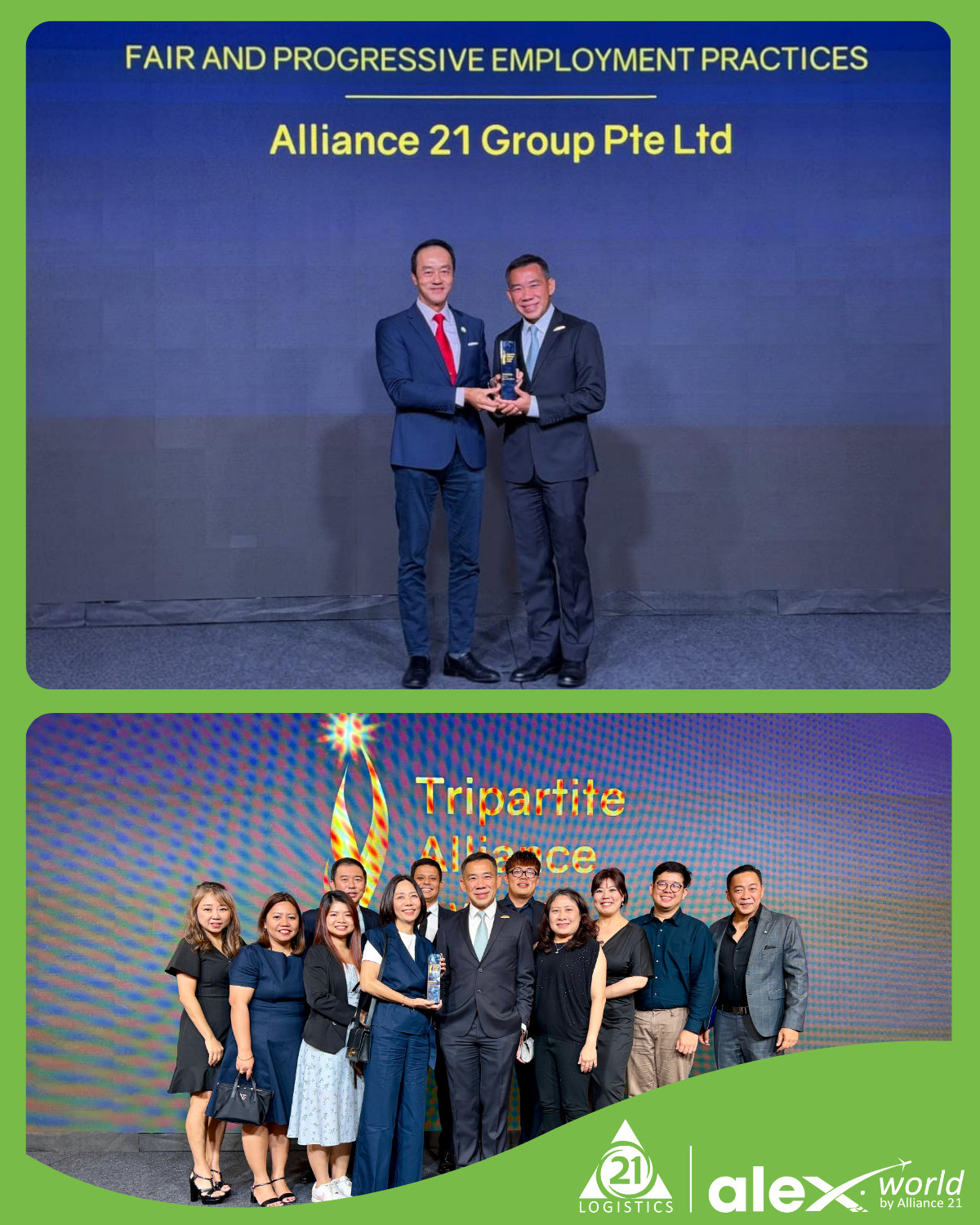How the Upgraded AANZFTA Impacts Singapore’s Logistics Sector
06 May 2025 | 10:46 AM

Unlocking Opportunities: How the Upgraded AANZFTA Impacts Singapore’s Logistics Sector
The upgraded ASEAN-Australia-New Zealand Free Trade Area (AANZFTA), effective from April 21, 2025, introduces significant enhancements poised to benefit Singapore’s logistics industry. These changes aim to streamline trade processes, bolster supply chain resilience, and foster sustainable economic growth across the region.
Key Enhancements Relevant to Singapore’s Logistics Sector
1. Simplified Rules of Origin (ROO)
The implementation of full cumulation allows businesses to source materials from any AANZFTA member country, facilitating easier qualification for preferential tariffs. This flexibility enables logistics providers to optimize routing and sourcing strategies, enhancing efficiency and cost-effectiveness.
2. Strengthened Supply Chain Resilience
The agreement includes commitments to maintain the flow of essential goods during crises, such as pandemics or natural disasters. This provision ensures that logistics operations can continue with minimal disruption, providing reliability to clients during uncertain times.
3. Enhanced Digital Trade Facilitation
Provisions promoting electronic commerce, including the adoption of e-invoicing and digital authentication, streamline cross-border transactions. For logistics firms, this translates to faster documentation processes and reduced administrative burdens.
4. Streamlined Customs Procedures
The upgraded AANZFTA introduces measures to expedite customs clearance, particularly for perishable goods, which must be cleared within six hours of arrival. This efficiency is crucial for logistics providers handling time-sensitive shipments.
Case Studies: Potential Beneficiaries
Case Study 1: Singapore-Based Electronics Exporter
A company exporting electronic components to Australia can now source parts from multiple AANZFTA countries and still qualify for tariff preferences. This flexibility reduces costs and simplifies compliance, enhancing competitiveness in the Australian market.
Case Study 2: Perishable Goods Logistics Provider
A logistics firm specializing in transporting fresh produce can leverage the expedited customs procedures to ensure timely delivery, maintaining product quality and client satisfaction.
Conclusion
The upgraded AANZFTA presents substantial opportunities for Singapore’s logistics sector by simplifying trade rules, enhancing supply chain resilience, and embracing digital trade facilitation. Logistics providers are encouraged to familiarize themselves with these changes to fully capitalize on the benefits.
To understand how your logistics operations can benefit from the upgraded AANZFTA, consult with trade experts or visit the official AANZFTA resources provided by Enterprise Singapore.


